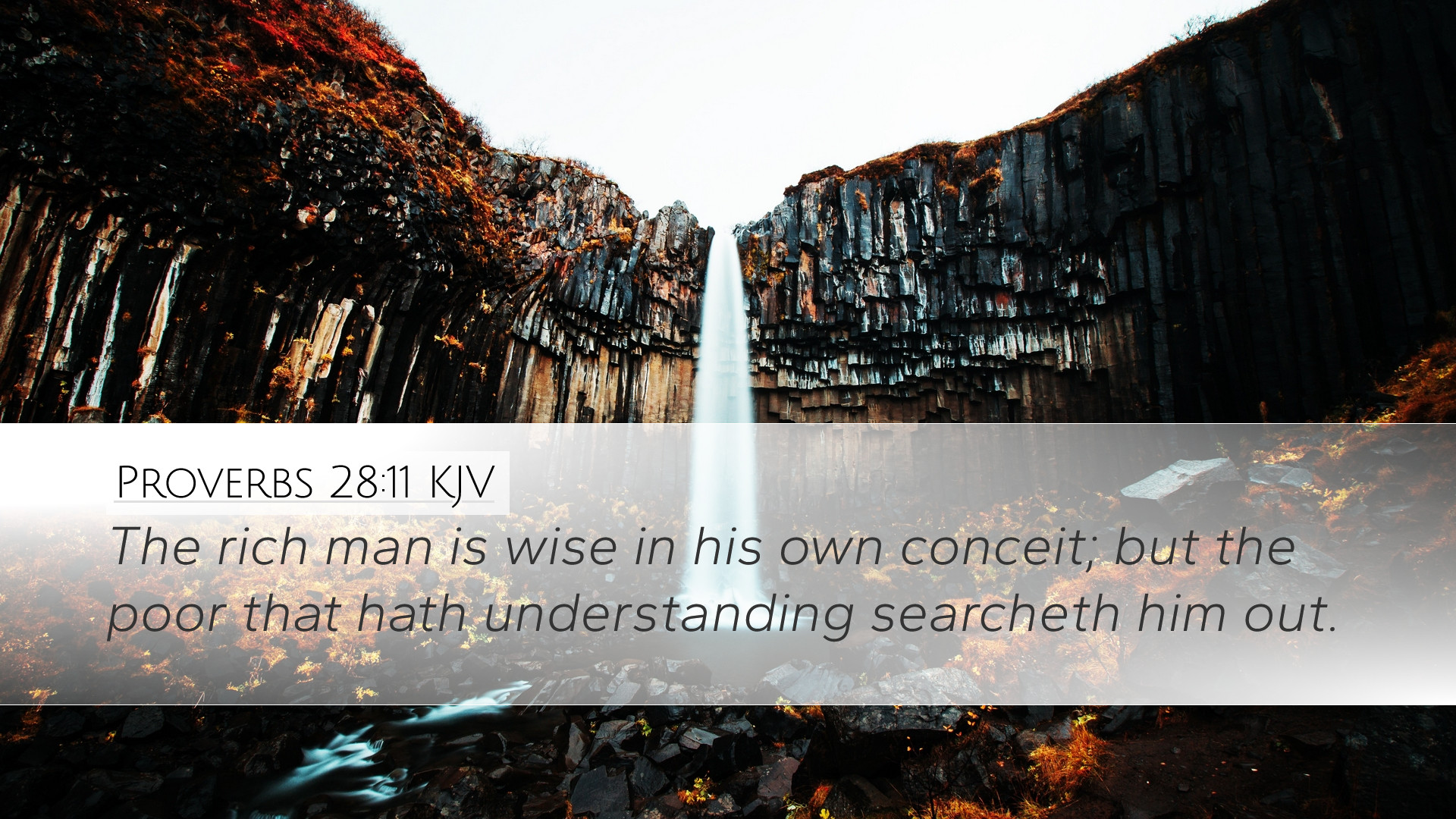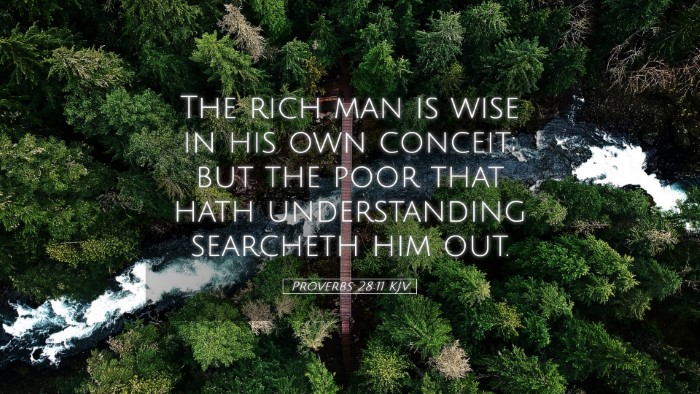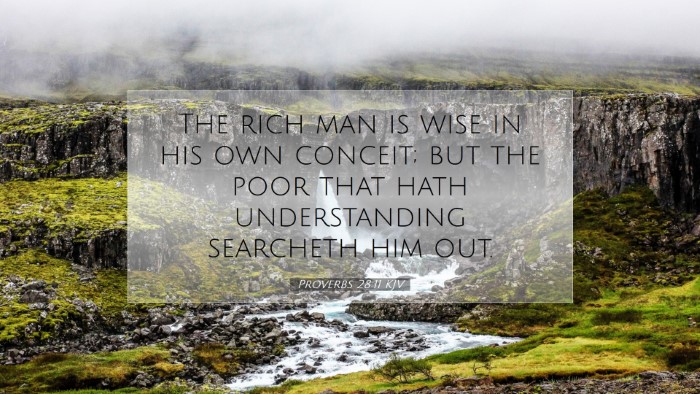Commentary on Proverbs 28:11
Verse: "The rich man is wise in his own conceit; but the poor that hath understanding searcheth him out."
Introduction
Proverbs 28:11 offers profound insights into the nature of wisdom and understanding, particularly contrasting the self-perception of the rich with the insight of the poor. This commentary synthesizes views from historical figures such as Matthew Henry, Albert Barnes, and Adam Clarke, providing a rich examination pertinent to pastors, students, theologians, and Bible scholars.
Contextual Background
The Book of Proverbs is a collection of sayings and teachings, primarily attributed to King Solomon. It conveys moral lessons and insights into wise living. Chapter 28 addresses various themes, including righteousness, justice, and the consequences of one's actions. Verse 11 stands out by emphasizing the contrast between wealth and true wisdom.
Exegesis of Proverbs 28:11
Analysis of Phrases
The rich man is wise in his own conceit: This phrase underscores a common human tendency—overestimating one’s wisdom, particularly based on wealth. Matthew Henry notes that the rich often feel a sense of superiority due to their material possessions, leading to a self-deceptive wisdom.
But the poor that hath understanding searcheth him out: The contrast emphasizes that true wisdom is not reliant on riches. Albert Barnes explains that those who are materially poor may possess a deeper, more genuine understanding of life and spiritual matters. They are often more discerning and capable of seeing through the façade of self-conceit.
Theological Insights
Wealth and Wisdom
Adam Clarke points out that wealth does not equate to wisdom. The rich man may be wise in his own eyes, viewing his material success as a proof of his intelligence; however, this can be deceptive. The biblical narrative frequently supports the idea that true wisdom comes from humility and understanding, qualities often found in those who are less affluent.
The Value of Understanding
Understanding, as implied in this verse, is a gift that transcends material conditions. It involves insight into God’s purpose and the nature of human existence. The poor, in having less distraction from material pursuits, often gain a clearer perspective on life, enabling them to discern truth and wisdom more readily than the affluent.
Practical Application
For Pastors and Church Leaders
This verse encourages leaders to cultivate an atmosphere that values wisdom over wealth. Pastors should prioritize spiritual understanding within their congregations, regardless of socio-economic status. Engaging with all members, especially the marginalized, can lead to a richer community experience.
For Students and Scholars
In academic contexts, this verse serves as a reminder to approach the study of wisdom literature with humility. Scholars are encouraged to seek understanding from various perspectives, including those traditionally viewed as less authoritative. The true pursuit of knowledge often involves recognizing our biases and limitations.
Conclusion
Proverbs 28:11 serves as a poignant reminder of the nature of true wisdom. By contrasting the self-deception of the wealthy with the insight of the poor, this verse invites deeper reflection on the values we hold in society. Engaging with these insights fosters a greater appreciation for humility and understanding, essential traits in the pursuit of divine wisdom.


